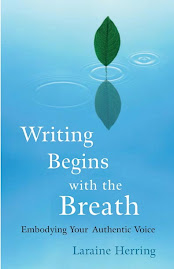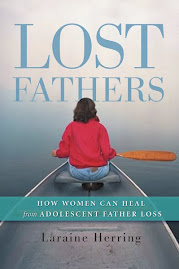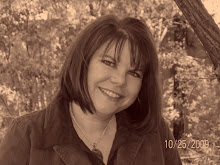How do you know if you've actually done any work? You go to classes. You do the practices. You change your eating habits. You keep peeling back the layers that have, you thought, kept you safe. You keep showing up even when you don't want to, but you still don't know if your central beliefs about yourself and the way you navigate the world can fundamentally change.
How can you tell?
When every trigger you have gets pushed in a short period of time and you find that your responses are not the responses of the past. And, you find that you can't even really access those past responses. There's this whisper of a whisper, "Shouldn't I be feeling contraction? Shouldn't I be undone?" But the whisper has no place to stand, so it soon enough blows away. You are somehow no longer making assumptions about the present moment based on past experience. WTF? How did that happen?
We all have tendencies and patterns. My dad wrote to me, in my 11th birthday letter, that I resisted change more than anyone he'd ever known. That says something about an 11 year old! But it was a very perceptive observation, and perhaps a belief about myself that I have solidified, in part because it has truth to it, in part because it was something dad saw in me and so by holding on to it I was holding on to him, and in part because I didn't think there were options.
I have worked for most of my adult life on issues of attachment and aversion. Generally speaking, attachments arise from our previous experiences of pleasure and happiness. Aversions emerge from previous experiences of pain and suffering. Over time, our sense of self-identity is largely formed by a long list of such likes and dislikes. We have a tendency to define ourselves as a collection of our previous emotional experiences. For me, these issues have surfaced most around times of change -- when a relationship ends, when someone dies, when others around me are changing and I don't want them to, when I am afraid of moving away from what no longer serves me.
For years I've had this line posted above my desk in my office:
Unconditional acceptance of whatever is arising in the present moment is absolute freedom.
I posted it so I would see it every day because I know my tendency is to resist whatever is arising. My tendency is to attach to a particular moment that rocked and hold on to it until it's dead. My tendency is to be sticky. To root myself so deeply I can't move. To solidify inside and outside.
When I figured these things out about myself, I thought that was a pretty big piece of work. I thought at least I will have greater awareness when I'm living my life. Now that I know I do this, at least I can not project my own stuff onto other people. But I didn't really think I could actually cellularly shift those things. I thought my job was to work with them because they would always be there (see the false assumption I had that there is permanence?)
In the past few weeks, I've been hit with everything that would have previously unmoored me. It started when Patrick Swayze died and I spent a few days crying for him and for dad. I could cry though, and go on with my day. It wasn't debilitating. It was cleansing. Then the following week was the one-year anniversary of my friend Jeffrey's death. In the past, I would have created a drama around that -- something along the lines of
I'll never see him again. I'll never have another friend like him. I'll never see San Francisco the same way again. And on and on. I did experience sadness, but it welled up, moved, and was gone. I went to his Facebook page (one never really dies on-line) and left a note on his wall, along with many of his other friends.
I finished the final draft of
The Writing Warrior and sent it to Shambhala a few days ago. This is the first book I've written that Jeffrey didn't read ahead of time. The first book that will not have his keen eye on the text. When a manuscript is finished, there is a period of silence. A space where there is nothing to do but wait for what is next. In the past, I would have attached to wanting the New Book NOW. I would have attached to how much I missed Jeffrey's input. How much I miss Jeffrey. But I didn't. I sent the book off and I am now waiting, both for the response from the editor and for the next book to start to speak.
But the biggest awareness of the internal changes occurred on Sunday at a workshop I attended. My fabulous friend Ciara attended as well. Ciara was on her way out of the state to a new life in Arkansas after the workshop. Cain was teaching the class, and he was on his way out of the country for a retreat. Ciara and I met in yoga and both studied a lot with Cain. We shared lots of growing together. We rubbed warm jade balls on our abdomens and coughed up ickiness. We poured salt water through our nostrils and did hours upon hours upon hours of shaking practice together.
I was already weepy by the time the class started. Cain had done a third cupping session with me on Thursday (see pictures below) and that one moved a ton of remaining sludge from a frozen shoulder I've been working on for several years. (If you're interested, the internet has info on Chinese cupping. I was going to attach a link to a video, but I thought it would be too much for my mom! And I have to admit, if I'd have seen the videos before I did it, I'm not sure I would have done it.)
After the cupping, I found myself spontaneously crying, leaking, essentially, from every possible place once the sludgy sticky water in me finally moved. I wept in a way that was more like washing off a muddy sidewalk than a weeping of attachment. I just let everything move. I also found freedom in my shoulders and back that I did not believe was possible. I felt like I had a whole new body, and that made more tears come. I just felt so grateful to be able to raise my arms above my head without contraction. Raising the arms seemed somehow connected to opening my lungs and my heart. Each time I did it, I felt freer, like I imagine a newborn must feel as she explores her new body. I didn't know how much blood was stuck in my shoulder until it moved.
In the past, if I knew I was going to an event that was going to involve saying good-bye to two people I cared about, I would have created a drama: This Is The Last Time The Three Of Us May Ever Practice Together. I would have decided that was a terrible thing, rather than a precious thing, and I would have held the as-yet-to-occur moment of good-bye as the Thing To Be Endured. I would have added my personal favorite storyline of abandonment. Of loss (based on a previous history of loss). I would have added the storyline of attachment and aversion -- I am Attached To My Practice Continuing As it Has Been and I am Adverse to Anything (ANYTHING) Being Different From How It Currently Is. I would have spent the entire class focused on the ending storyline, rather than being in the class with the present moment experience. But I couldn't do that. The class was not about the ending of the class. It was only about the class.
Ciara and I went to lunch at the Raven at the break. Previously, the storyline in my head for that lunch would be: This May Be My Last Lunch With Her. I would try to attach to her not leaving. I would try to avoid the end of the lunch. I would not, in any way, be able to be present and enjoy the lunch. But I didn't do that either. We simply had lunch.
Class ended and Ciara and I went to say good-bye to Cain. I was weepy because I've been weepy now for weeks. Previously, I would have snuck out of the class to avoid actually saying good-bye. I wouldn't have been clean and clear about it. But this time, I told both of them how they helped me. I told both of them I was grateful. And we all said good-bye.
And I didn't die. :-) And I did not get tossed away. I couldn't even attach to trying to get tossed away. There was only the moment. I couldn't create the contraction that I would have experienced before. I just felt what I felt when I felt it.
I tried to bring back the feelings I was expecting to feel -- the contraction I was sure would come. The inevitable (I assumed) triggering of grief onto and into grief. But I couldn't. I felt sad and I felt grateful and I felt happy, all at once and one after the other.
I'd been given a chance to see if the internal patterns I have previously shaped my identity around could change. And they did. I don't know when they fell away, but they are gone. And there's a freedom in that I didn't know was possible. The bruises on my back and shoulders are fading, but the space inside them is still there.
Whaddya think, Dad? I walked right into change. I walked right into the ending of a phase of learning. I walked right into sadness and it didn't stick to me. On the other side of it is the next right thing.
Now, note to self: don't attach to this .... OK, OK. It's already different. Oh! Different again! And I'm still standing! Who'd have thunk it.
results of cupping 3 days afterwards (see, Mom, I'm smiling! It's OK)
back results of cupping 3 days afterwards
my friend Ciara
One of the trainings with Cain a few years ago.
(I'm in the green skirt and Cain's in the white shirt in front of me.)
You can see I'm not convinced I can move my shoulder like that!



















